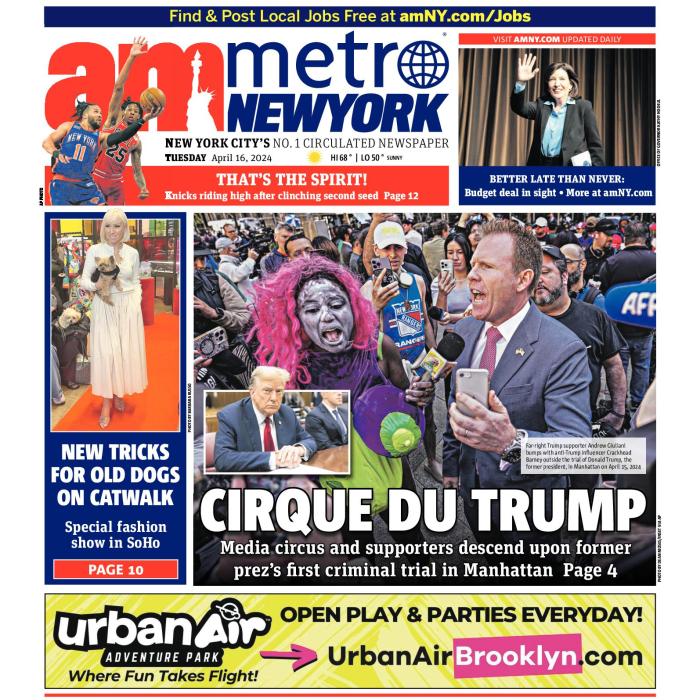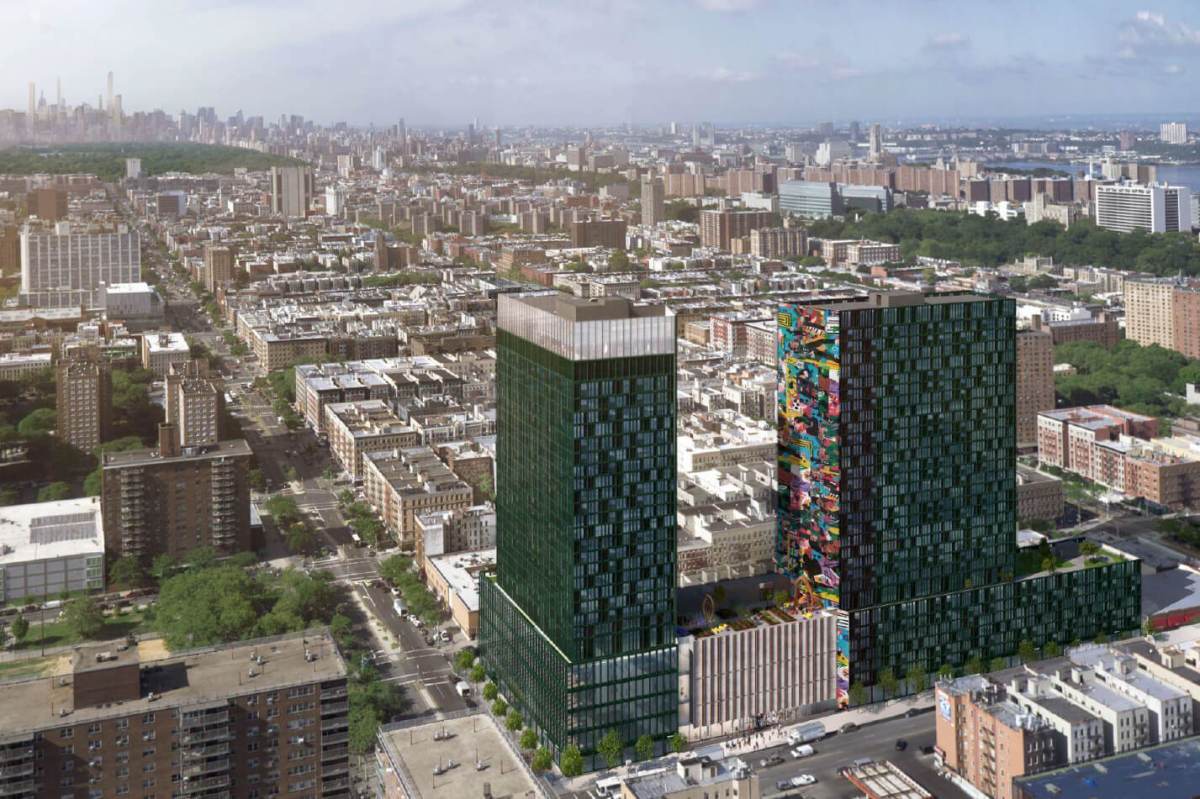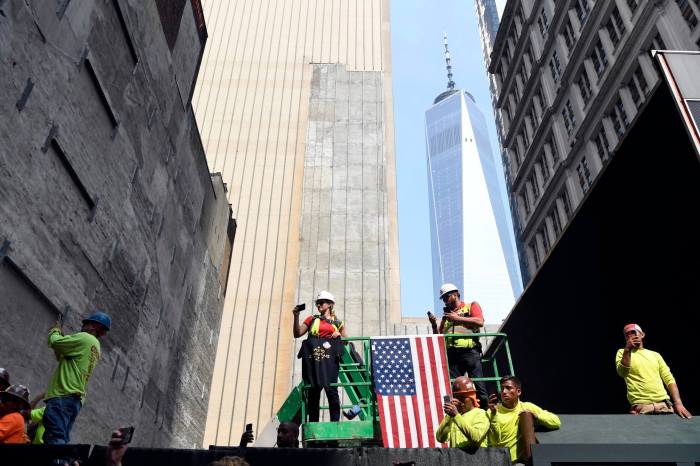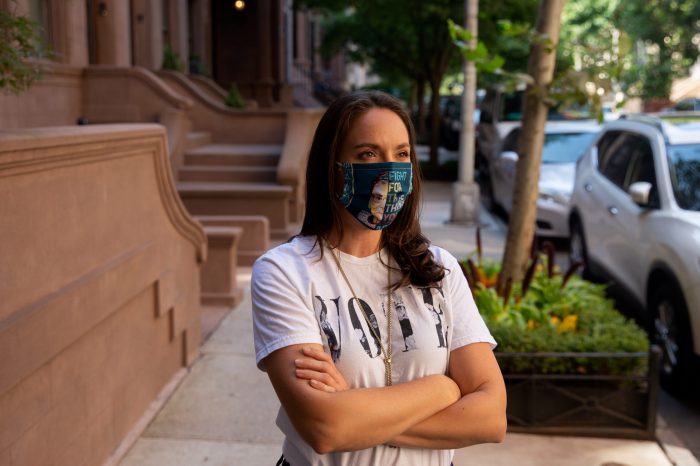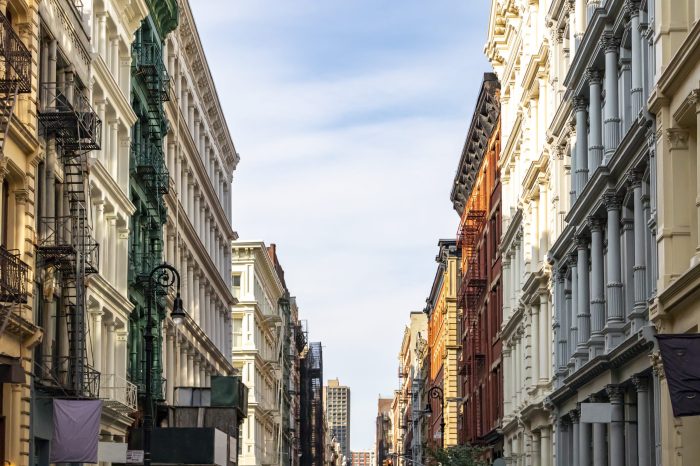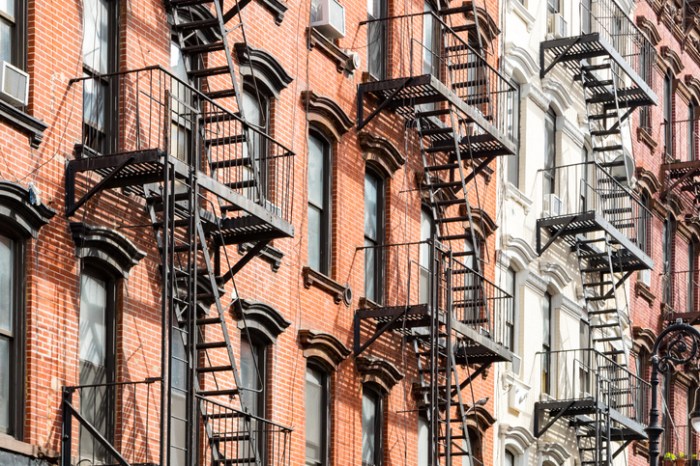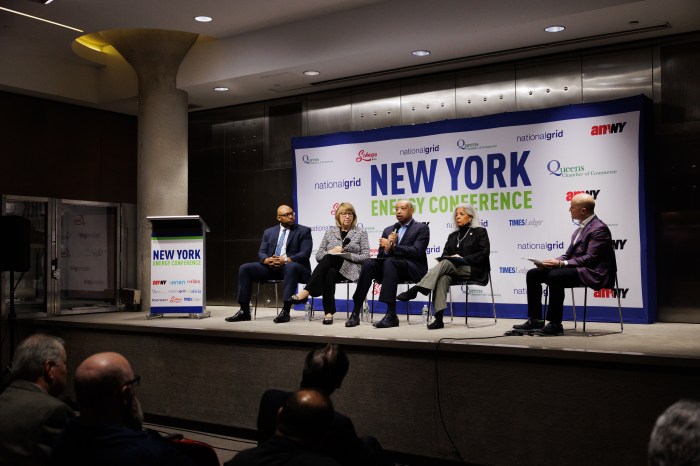This article was originally published on by THE CITY
The nearly 400-foot towers originally had the backing of Rev. Al Sharpton and the promise of a civil rights museum but was vehemently opposed by local elected officials worried about more gentrification in the area.
The developer of an embattled residential complex in Harlem told THE CITY he plans to add more affordable housing after pushback from local leaders — including the area’s new Council member and the Rev. Al Sharpton, who backed out of a plan to anchor the building with a civil rights museum.
One45, the name for a massive pair of 363-foot towers at the corner of West 145th Street and Lenox Avenue, has since it was proposed last year faced strong opposition from community members concerned about gentrification and the lack of affordable housing in the neighborhood.
First time Councilmember Kristin Richardson Jordan (D-Harlem) has protested the project and would likely sway a larger Council vote in the coming weeks — if the tradition of local member deference is followed.
But One45 developer Bruce Teitelbaum – who was once an aide to former Mayor Rudy Giuliani – told THE CITY this week that his RPG Group will release a new proposal early next week that will include more affordable apartments in the two massive towers slated to be built in between a smaller commercial development.
He hopes that will engender more support as the Council subcommittee on zoning readies to vote on the plan next Tuesday.
“It’s something we’ve been told by a lot of the local stakeholders and the folks around town that it’s important, we obviously came into the project doing affordable housing as we were required to do and we were happy to do it,” Teitelbaum said.
“It became evident pretty quickly that we needed to do better and do more.”
The plan as-is includes 900 apartments — with around 220 of them categorized as “affordable,” with income restrictions on tenants and limits on rents. That is the minimum required under the city’s “mandatory inclusionary housing” zoning laws.
Teitelbaum would not say how many more units would be made affordable at the residential and commercial development, but a person familiar with the new plan said it could add 100 more affordable units to the development.
Supports Eroding
The City Planning Commission approved the necessary rezoning for the development’s current form last week, but Manhattan Borough President Mark Levine voted against the proposal — and Richardson Jordan has been one of its most vocal critics.
The development also suffered blow this week after Sharpton relocated plans to open a new Museum of Civil Rights, which he had previously proposed for the base of the towers.
He sent a letter to the developers saying the Civil Rights Foundation, Inc., which he founded with Judge Jonathan Lippman, would withdraw its application to open the museum at the site.
“We have decided to pursue the two other very live, viable options for the Museum of Civil Rights to be at the size and commitment we want,” Sharpton wrote in the letter, which was shared publicly.
 Hiram Alejandro Durán/ THE CITY
Hiram Alejandro Durán/ THE CITYSharpton didn’t say what the other options are, but in March real estate developer Don Peebles told The Real Deal the museum would be coming to his “Affirmation Tower” project at Hudson Yards.
In his missive, Sharpton urged the One45 developers to instead put more affordable and senior housing where the museum would have been.
Teitelbaum said he and the developers were considering other location options for the space, but they hadn’t decided one one yet.
His National Action Network had also announced plans to move its headquarters to the building, but it’s unclear if it will still move to the site.
Remember Member Deference?
Richardson Jordan has been opposed to the project since before she was elected last November, saying it lacked the affordable housing units Harlem needed.
She called the inclusion of a civil rights museum a “Trojan horse” via Twitter last month.
“Luxury real estate developers and their accomplices are exploiting Harlem’s legacy and Black history to displace Black families while personally enriching themselves,” she tweeted.
She did not respond to THE CITY’s request for comment on the potential addition of more affordable units.
In voting against the project in February, Levine argued at least half of the apartments should be affordable units.
Following the Planning Commission approval, the project next must go to the Council for final votes. The developers need the Council’s approval in order to rezone the pieces of land to build as high and as dense as is currently proposed – and any other plan for the site would require a restart of the city’s land-use process.
Councilmember Rafael Salamanca (D-The Bronx), who chairs the land use committee, said the Council is unlikely to back the project if Richardson Jordan doesn’t support it.
A spokesperson for Speaker Adrienne Adams said she is letting the land-use process play out in the Council.
 Ben Fractenberg/THE CITY
Ben Fractenberg/THE CITY
Typically, the Council defers to the local member position on land-use votes. But it bucked that tradition late last year and approved a rezoning for the New York Blood Center’s building on the Upper East Side, despite the opposition of the local Council member at the time, Ben Kallos.
Salamanca said these are two different situations, noting the Blood Center has a citywide benefit beyond the neighborhood.
“There’s no appetite in the Council to override [Richardson Jordan] given the fact that she’s fighting for affordable housing, and the community board and the borough president doesn’t approve it,” Salamanca told THE CITY.
“I don’t see them overriding the member for a developer.”
Teitelbaum said his project some received community support but that needs had recently changed.
“The rental market in New York is getting tighter and it will get tighter for the foreseeable future,” he said.
THE CITY is an independent, nonprofit news outlet dedicated to hard-hitting reporting that serves the people of New York.
